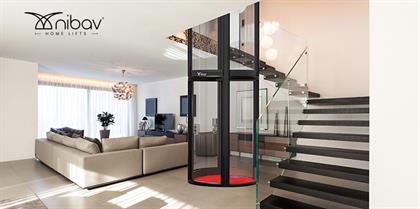
What Should You Consider When Choosing the Right Home Elevator for Your Building?
September 23, 2024
When it comes to enhancing the functionality and accessibility of your home, a residential elevator can be a game changer. Whether you're building a new home or renovating an existing one, selecting the right home elevator involves several key considerations. This guide will walk you through the essential factors to help you make an informed decision.
Understanding Your Needs
Assess Your Space
Before diving into the various elevator options available, it's crucial to assess your home’s layout. Measure the height of the floors and the available space for the elevator shaft. Some elevators require more room than others, and understanding your home's dimensions will help narrow down your choices.

Purpose of the Elevator
Consider what you primarily need the elevator for. Is it for accessibility, particularly for elderly family members or those with mobility challenges? Or is it primarily for convenience, such as moving heavy items between floors? Clarifying the purpose will guide you in selecting features and specifications.
Future-Proofing Your Choice
As your family grows or ages, your needs may change. Think about future requirements. A home elevator that meets your current needs should also have the capability to adapt to future demands, whether that means accommodating more weight or integrating smart home technologies.
Safety Features
Safety Standards and Regulations
Ensure that the home elevator complies with local safety regulations and standards. The best manufacturers provide elevators that meet or exceed these guidelines. Check for certifications that indicate compliance with safety standards.
Safety Mechanisms
Look for elevators equipped with advanced safety features. These may include:
- Emergency Stop Button: A button that allows users to stop the elevator in case of an emergency.
- Automatic Door Locks: Ensures the doors do not open while the elevator is in motion.
- Emergency Alarm System: An integrated alarm system to alert others in case of an emergency.
Accessibility Features
If accessibility is a priority, consider elevators designed with features such as low-button placement, voice-activated controls, and tactile buttons for the visually impaired.
Technology and Innovation
Smart Home Integration
In today’s tech-driven world, home elevators can be integrated with smart home systems. This allows you to control your elevator through a mobile app or voice commands. Look for elevators that are compatible with smart home technologies for added convenience and modernity.
Energy Efficiency
Energy-efficient elevators can reduce your home's overall energy consumption. Opt for models with energy-saving features such as LED lighting and regenerative drives that recycle energy during operation.
Noise Level
Consider the noise level of the elevator during operation. Many modern elevators are designed to operate quietly, minimizing disruptions to your home environment. If noise is a concern, inquire about noise reduction features.
Aesthetic Considerations
Design and Style
The elevator will be a visible feature in your home, so it’s essential to choose a design that complements your decor. Manufacturers offer various styles and finishes, from sleek and modern to classic and ornate. Customize the elevator to match your home's interior design.
Interior Features
Consider the interior design of the elevator cabin. Look for options that include features such as mirrors, lighting, and flooring that align with your personal taste and overall home aesthetic.
Budget and Costs
Initial Investment vs. Long-Term Value
While it might be tempting to opt for the cheapest option, remember that quality and safety are paramount. Invest in a reliable home elevator that meets your standards and will offer long-term value.
Installation Costs
Installation costs can vary significantly based on the complexity of the installation and the elevator model. Ensure you obtain quotes from multiple suppliers and ask about all potential costs, including maintenance and warranties.
Maintenance and Service Plans
Regular maintenance is crucial for the longevity and safety of your home elevator. Inquire about service plans offered by manufacturers. A reputable company should provide comprehensive maintenance services and be transparent about costs.
Choosing the Right Manufacturer
Research and Reviews
Do thorough research on various home elevator manufacturers. Look for customer reviews and testimonials to gauge reliability and service quality. Choose a brand with a strong reputation in the industry.
Customer Support
Assess the level of customer support provided by the manufacturer. A company that offers excellent after-sales service will be invaluable if you encounter any issues post-installation.
Warranty and Guarantee
Check the warranty terms for the home elevator. A solid warranty indicates that the manufacturer stands by the quality of their product. Ensure you understand what is covered under the warranty and for how long.
Conclusion
Choosing the right home elevator involves careful consideration of several factors, including your space, needs, safety features, technology, aesthetics, budget, and manufacturer reliability. A well-chosen elevator not only enhances your home's functionality but also adds value and accessibility.
If you’re looking for the perfect home elevator solution, consider Nibav Home Lifts. Our elevators combine innovative technology, exceptional safety features, and stylish designs, ensuring that you find the perfect fit for your home. Contact us today to explore our offerings and get started on your journey to elevating your living space!




















